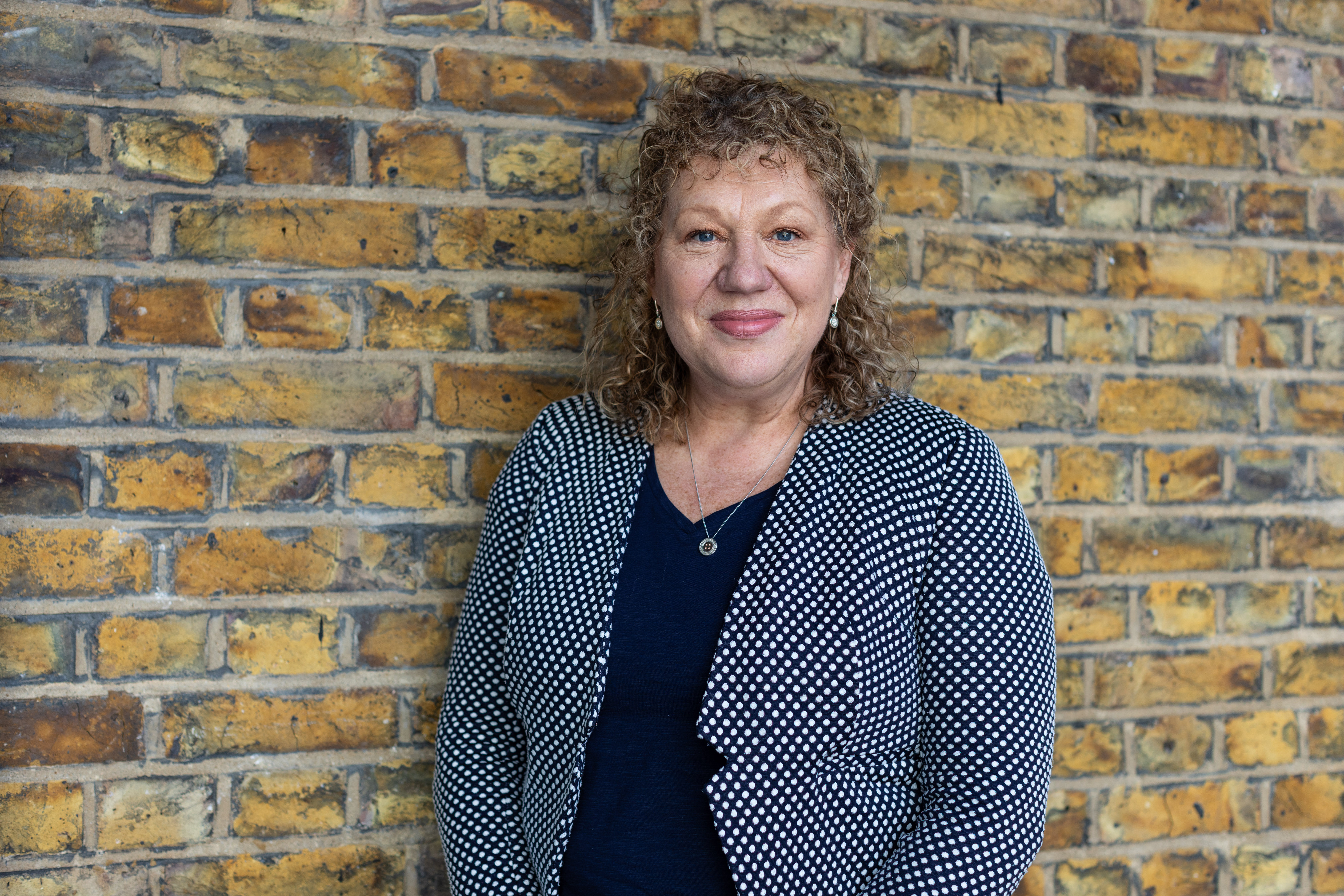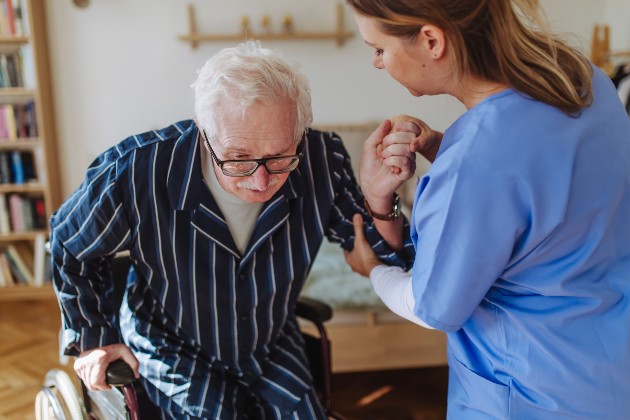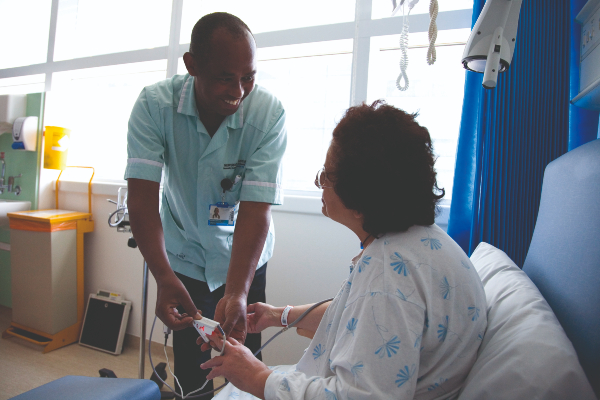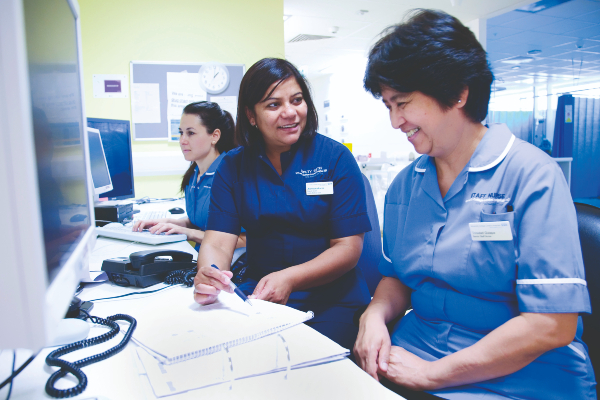
Stronger Nursing, Stronger Nation
A manifesto for the 2026 Senedd elections
Our members are experts in health and social care.
We are committed to delivering the best quality care for our patients and to improving the health of the people of Wales.
This Manifesto sets out the key policies which, if implemented by the next Welsh Government, will improve the health and care of people in Wales.
Our members know very well the problems faced by those trying to improve care services including financial pressures. In this Manifesto we provide policy recommendations that not only will deliver better outcomes, but can also be practically implemented with the policy, legislative and funding options open to an incoming Government.

"We are at breaking point. Emergency departments are no longer able to function and we are causing harm to patients."
1. End corridor care
"Corridor care" has become widespread and entrenched in NHS Wales, presenting a serious new risk to patients’ lives.
“Corridor care” means looking after patients in places where safe care isn’t possible – corridors, but also storage areas, waiting rooms, offices, car parks, even toilets.
Health boards use these spaces to cope with rising pressure on emergency departments.
But this puts patients at risk when:

1. End corridor care
"Corridor care" has become widespread and entrenched in NHS Wales, presenting a serious new risk to patients' lives.
"Corridor care" means looking after patients in places where safe care isn’t possible – corridors, but also storage areas, waiting rooms, offices, car parks, even toilets.
Health boards use these spaces to cope with rising pressure on emergency departments.
But this puts patients at risk when:
- A commitment to publish Corridor Care data by Health Board monthly.
- Direct NHS Wales to pause the reduction in hospital beds and commission two national reviews, to examine A&E and hospital bed capacity at different levels of patient dependency.
- Establish care delivered to a patient in a chair for more than 24 hours as a “never event”
- The data set to have been agreed and the first data set published.
- The two national reviews of capacity to be published with policy recommendations to Wesh Government.
- Care delivered to a patient in a chair for more than 24 hours established as a “never event”.
- Increase in the number of senior clinical decision-makers in A&E departments 24/7 to see and treat patients and on hospital wards over the weekend to allow patients to be discharged.
- Increase the number of commissioned educational places for District Nurses (and nurses with a community nursing master’s degree).
- Show an increase in the number of Fulltime Equivalent District Nurses (and nurses with a community nursing master’s degree) employed by the NHS.
2. Protect patient safety
"Nursing is an evidence-based, safety critical profession that is continuously let down and underfunded by the government."
If you are injured or ill, you are vulnerable. Receiving care should help you, not harm you.
If the nursing staff caring for you do not have the right skills, clinical supervision or simply are not given enough time to care, this can result in a range of negative outcomes including an increased risk of death, infections, falls, pressure ulcers and harm from medication error, as well as deconditioning of independence, malnutrition, dehydration and increased length of stay.

The Welsh Government can protect patient care by taking the actions we set out here to ensure that service providers – including the NHS are held to the highest possible standards. The outcomes of health service inspection should be visible and accessible to the public.
Nurses need to refresh and develop their clinical skills as the art and science of nursing progresses. This is required by the Nursing and Midwifery Council as part of professional registration and is needed to provide the best care. NHS Wales needs to invest in learning to ensure the best services are provided.
- Implement protected time for Continuous Professional Development (in addition to mandatory training) for registered nurses in NHS Wales equivalent to the contract of doctors.
- Legislate to extend Section 25B of Nurse Staffing Levels (Wales) Act 20216 to community nursing and mental health inpatient settings – this uses an evidence-based method to set the nursing establishment needed to provide safe care to patients.
- Legislate to regulate nursing agencies (as medical agencies are regulated).
- Commit to introducing legislation to amend the Duty of Quality to require Health Boards to give full consideration of workforce issues as part of their Quality Statements.
- Put Health Inspectorate Wales on an independent statutory footing with a clear methodology of inspection set out in law. The inspection methodology should explicitly consider the safety level afforded by the numbers and skills of nursing staff.
3. Nursing care at the heart of the community
"Please invest in nursing. Think of the bigger picture and how it affects the whole of society."
There is an emphasis on the shift of services from secondary to primary and community care, with the priority being the prevention of illness and keeping people at home longer.
Two-thirds of our members are nursing in the community.
District Nurses, Practice Nurses, Children’s Nurses, Community Mental Health Nurses, Frailty Teams, Nurses in care homes – our members provide the invisible glue bringing together health and social care.

Community Nursing supports people to live at home, by managing chronic conditions and supporting people with complex presentations in the community. Nursing provides the capacity to release people from hospital and prevent unnecessary admissions. Community nursing is integral successful integration of health and social care and requires needs strategic leadership and investment.
Registered Nurses manage the delivery of complex, high-quality care, reducing admissions to hospital, and improving health and well-being. In care homes some residents may require specialised nursing care, but all residents benefit from nursing advice to prevent illness and to help maintain their independence. A registered nurse’s presence in a care home for people with nursing needs is essential for continuous monitoring and assessment of their health and wellbeing.
The limited and short-term nature of funding for residential nursing care for older people in Wales is a national crisis. Many small care homes are struggling to provide appropriate and safe nursing care. This means that people are admitted to hospital unnecessarily, transferred to a setting that lacks appropriate nursing care or kept in hospital unnecessarily. Innovation by the Welsh Government could see the direct provision of this care or reform in the way it is paid for.
- Consult on reform of the continuing healthcare assessment with an intention to remove artificial and discriminatory distinctions between health and social care need.
- Consult on ways to reform the funding of residential nursing care including examining the option of NHS commissioning of residential nursing care capacity rather than having funding contingent on individual patient assessment.
- Review the contracting arrangements to allow nurses to undertake activities in care homes currently completed by other nursing teams.
- Ensure that there is a dedicated seat on each Regional Partnership Board for a senior nurse.
- Ensure that there is access to commissioned postgraduate education, including Specialist Practitioner Qualifications for nurses working in IHSC
- Ensure there is access to commissioned pathways for support staff working the in IHSC to access registered nursing careers
- Develop an evidence-based methodology or guidance for consultant nurse workforce planning to identify the numbers required.
- Ensure that there is a formal seat for a senior nurse on all primary care clusters.
- Revise the General Medical Services contract to allow nurses the same opportunities to provide care in the community as their medical and pharmacy colleagues.
4. Wales needs nurses
"We love what we do. We just want the opportunity to do it to our highest standard."
Wales needs nurses. The nursing profession is essential to caring for people safely and effectively. Without enough nurses with the right level of skill and experience health and social care services become ineffective and unsafe.
The environments in which nurses work are difficult and challenging, with a lack of staff leading to compromised care for patients. With nurses in NHS Wales being underpaid and professionally neglected, many are having to leave the profession or seek opportunities outside of Wales.

Nurses are expected to work long hours, not given sufficient access to professional development and career opportunities. The support for nursing students is not enough to attract and retain new entrants to the profession.
None of this is inevitable. Other health professionals receive support from NHS Wales in ways that would benefit the nursing profession.
To provide specialist care we need to develop specialist nurses, for example specialist child and adolescent mental health nurses can assess, treat and support vulnerable young people in the community, Specialist nurses need to be developed through experience and education that is accessible and funded. Specialist nurses will be able to deliver care in different ways, to better meet the needs of people and their communities, ultimately leading to service provision that is more effective with better clinical outcomes.
A new Welsh Government could prioritise making NHS Wales a place where the best nurses and nursing staff from Wales, the UK and internationally are attracted, retained and rewarded.
- Demonstrate that flexible working requests are approved as a default for NHS Wales Staff.
- Ensure that nursing students can recover the full costs associated with accessing placements.
- NHS Wales provides free car parking to students whilst on placement.
- Implement a 36-hour working week for NHS Wales nursing staff.
- Ensure that nurses in NHS Wales have the benefit that devolution can achieve for a better outcome in relation to pay, reduction in the working week and other terms and conditions.
- Publish a national strategy for postgraduate nursing education in Wales setting clear targets for educational commissioning.
- Ensure that there is a guaranteed job available for newly qualified nurses who have studied in Wales and want to work in Wales.
- Fully implement Annex 20 in respect of the nursing workforce, ensuring that registered nurses can progress from Band 5 to Band 6 following a formal preceptorship period to achieve professional parity with paramedics and midwives.
- Ensure that, across NHS Wales there is an optimal number of consultant nurse posts in each specialty to meet patient need.
- Offer a non-means tested NHS Bursary that is in-line with the cost of living and adjusted according to inflation.
- Increase pre and post registration education provision for nursing in the Welsh language.





